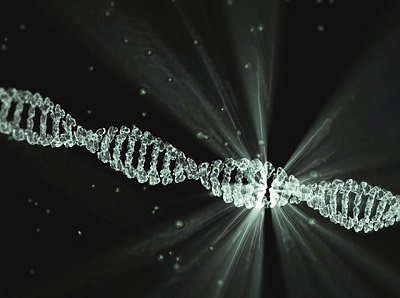Is Adenomyosis Hereditary?
Adenomyosis is when endometrial glands and stroma invade the uterine muscle layer, forming diffuse or localized lesions. Patients commonly exhibit symptoms such as increased menstrual flow, prolonged periods, and progressively worsening dysmenorrhea. The pathogenesis is complex, and the exact cause is still unclear.

The relationship between adenomyosis and genetics has been a significant area of interest in various research directions.
So, does adenomyosis have a genetic component?
The mechanisms by which genetic factors influence the onset of adenomyosis may be multifaceted:
On one hand, it may be related to gene mutations or variations. Specific genes may be associated with endometrial cells' growth, differentiation, and invasion into the uterine muscle layer. When these genes are abnormal, the risk of developing adenomyosis could increase.
On the other hand, genetic factors may affect an individual's hormone metabolism, immune system function, etc., thereby indirectly influencing the uterus's response to endometrial ectopic tissue and promoting the development of adenomyosis.
The following factors may increase the genetic risk of adenomyosis:
1. Family Aggregation: If multiple relatives (especially direct relatives, such as mother or sisters) have adenomyosis, the risk of other female members in the family developing adenomyosis is relatively higher.
2. Hormone-Related Genes: Hormones play an essential role in the development and progression of adenomyosis. Genetic abnormalities related to hormone metabolism or regulation within a family may affect the hormonal balance in women, thereby increasing the genetic risk of adenomyosis.
3. Immune System-Related Genes: Abnormal immune system function may make it easier for endometrial cells to invade the uterine muscle layer. Defects or mutations in immune system-related genes within a family may indirectly increase the genetic risk of adenomyosis.
It is essential to clarify that while these factors may increase the risk of developing adenomyosis, they are not the only determining factors. Environmental factors, lifestyle choices, and other elements also play significant roles in the development and progression of adenomyosis.
Unhealthy lifestyle habits, such as prolonged mental stress, excessive fatigue, and poor dietary habits, may impact hormonal balance and increase the risk of adenomyosis.
Additionally, multiple pregnancies, induced abortions, and other uterine procedures may damage the uterus and create conditions conducive to the development of adenomyosis. External factors such as environmental pollution, exposure to harmful substances, and improper use of medications may also increase the likelihood of developing adenomyosis.
For women with a family history of adenomyosis, genetic factors may pose a particular risk, but it does not mean that they will inevitably develop the condition.
By taking some proactive preventive measures, it may be possible to reduce the likelihood of developing adenomyosis:
Maintaining a healthy lifestyle, such as a balanced diet, regular exercise, reducing stress, and avoiding unnecessary uterine procedures, can help support uterine health.
Developing good hygiene habits, particularly during menstruation, choosing appropriate sanitary products, frequently changing underwear, and keeping the intimate area clean and dry can reduce the chance of bacterial infections.
Additionally, regular gynecological check-ups, especially for women with a family history of the condition, are essential for early detection and intervention of any abnormalities. If symptoms such as menstrual irregularities or dysmenorrhea occur, it is necessary to seek medical attention promptly to clarify the diagnosis and take appropriate treatment measures as soon as possible.
Adenomyosis and genetics have a particular association, but it is not an absolute causal relationship. Genetic factors are only one of many factors involved in developing adenomyosis, and environmental and lifestyle factors should not be overlooked. If diagnosed with adenomyosis, it may be worth exploring herbal medicine, such as Fuyan Pill, which has over thirty years of experience in treating adenomyosis and can effectively alleviate symptoms.
You may also be interested in:
Long-term Dysmenorrhea from Adenomyosis: These 2 Exercises Can Help
Long-term Dysmenorrhea from Adenomyosis: These 2 Exercises Can Help
previous pageWhat Impact Does Scanty Periods On Adenomyosis Patients
next page- Herbal Treatment for Adenomyosis with Large Uterine Enlargement and Heavy Bleeding
- Adenomyosis Dysmenorrhea: A Practical Guide to Topical Traditional Chinese Medicine Methods
- Effective Chinese Herbal Remedies for Adenomyosis Pain: End Your Period Discomfort
- Adenomyosis with Unbearable Cramps: When Painkillers Don't Work—Natural Relief with Fuyan Pill
- Managing Adenomyosis: Easing Pelvic Pain and Heavy Menstrual Bleeding with Natural Approaches
Testimonials
- Adenomyosis with Ureaplasma Urealyticum Cured by Fuyan Pill
- Tubal blockage with hydrosalpinx can be cured by TCM shortly
- Fuyan Pill Helps A woman with Adenomyosis Get Pregnant
- A Woman with Hydrosalpinx Is Cured with Fuyan pill
- Pelvic Inflammatory Disease Testimonials
- Irregular Vaginal Bleeding and Endometrial Thickening Cured by Fuyan Pill
- Pruritus Vulvae and Frequent Urination: Mycoplasma Infection Cured after 2 Courses



